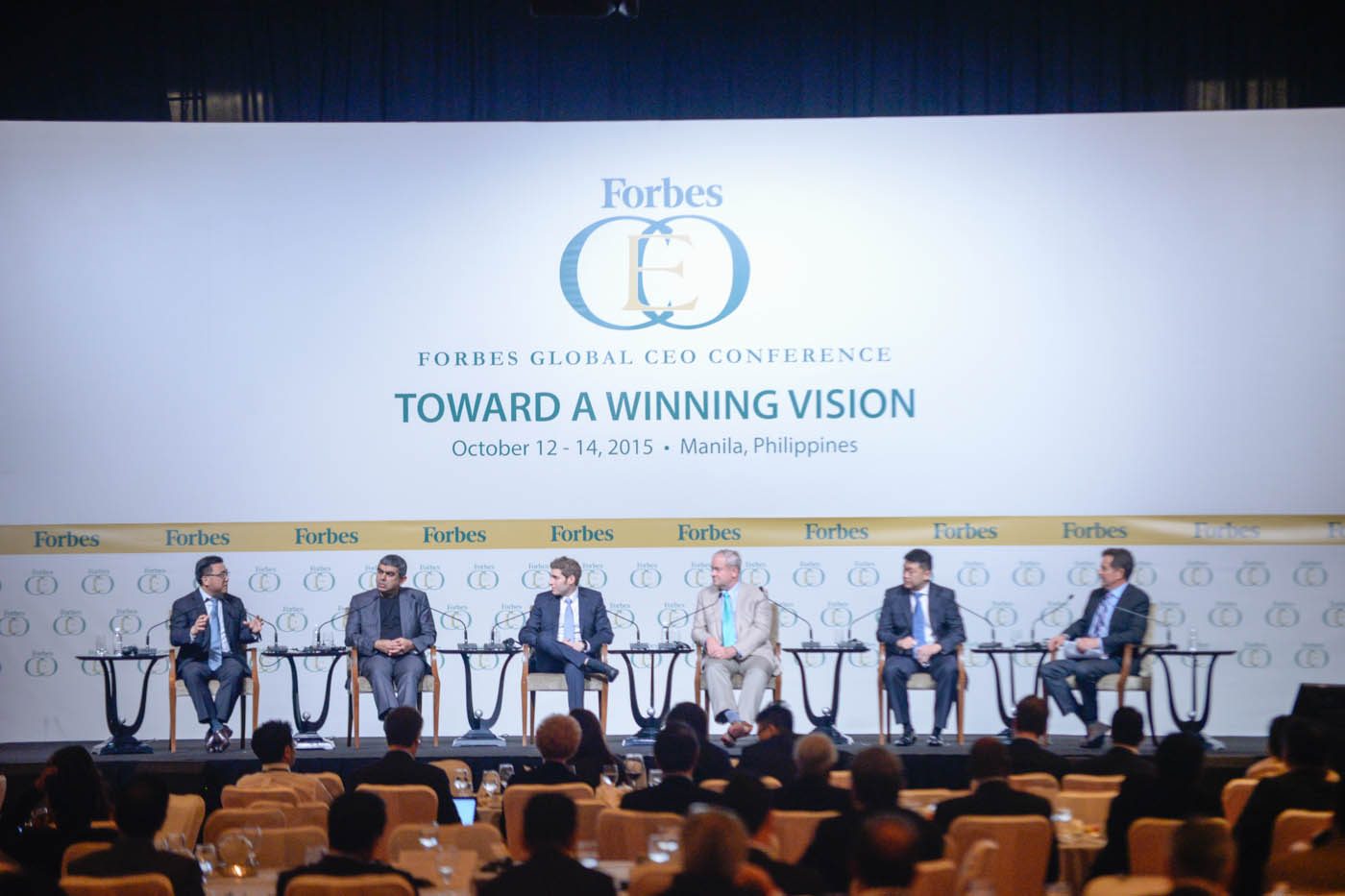SUMMARY
This is AI generated summarization, which may have errors. For context, always refer to the full article.

MANILA, Philippines – Predicting how technology will evolve is easy, but the real trick is to figure out how it will really change the world, tech visionaries said during a panel discussion at the 15th Forbes Global CEO Conference on October 13, Tuesday.
Microsoft losing out in the mobile boom is a case in point. It had all the technology, and even pioneered the use of touch screens, yet it missed out, said Baidu President Zhang Ya-Qin, who formerly served as Microsoft’s corporate vice president and chairman of its Asia research and development group.
“The shift to mobile was not about technology. The issue really is on making bets on how to use it,” he said during the “Gazing into the Future” panel discussion.
Zhang was one of the panelists of #FGCEO2015, who included Infosys Managing Director Vishal Sikka and Facebook co-founder Eduardo Saverin. They discussed technology trends and their impact on the world. (READ: Facebook’s Saverin, World Tycoons in Manila)
Saverin emphasized this point when he explained that Facebook was originally designed simply to make his and co-founder Mark Zuckerberg’s college lives better and more productive.
“We never envisioned that we would be empowering the whole world to connect and democratize the process of technical innovation. Frankly, I’m humbled by what we did,” he added. (READ: Saverin’s 3 thoughts on innovation since Facebook)
Opportunities today
That being said, the panelists readily agreed that some identifiable trends have emerged that can be leveraged by forward thinkers. (READ: GEOX Founder: Be unique, protect your ideas)
One such trend, as pointed out by Infosys’ Sikka, is that everything is becoming a service.
“Everything from airplane engines to tires is now available as a service,” he said, predicting that the sharing economy headlined by firms offering temporary services like Uber or Airbnb will become much more prevalent.
Another big trend is that the world is entering the second phase where software itself is being used to create value that can be monetized. Sikka said that the best way for firms to take advantage of this is to foster a culture of innovation among its workforce.
“The whole world could use a bit of the culture of Silicon Valley,” he said.
Sikka pointed out that a bad mindset people have now is the tendency to distinguish between people who do innovate and those who don’t. “Everyone can innovate. The key is teaching them how to.”
Long-term predictions
Predicting technology trends on the longer term is much more complicated, as reflected in the differing views of the panelists on the subject – some predicted rapid progress; others focused on possible impediments.
Saverin, for his part, asserted that people may be underestimating the impact of privacy issues especially as we move toward a world filled with sensors and automated processes.
“We’re entering a world where technology will evolve in different ways that we think of because of regulatory oversights by governments and we’re underestimating the backlash,” he explained.
“It’s almost like we’re in the era of 1984, but we’re heading in that direction,” he added.
Sikka predicted that rapid advances in bio technology will make the “hacking of the human body will happen much sooner than we think and we will be able to enhance what we do.”
Other innovations discussed included 3D printing, which Qiming Venture Partners Managing Director Gary Rieschel said would take longer than expected to make anything useful, despite many people’s belief that it’s the next big thing.
Rieschel predicted that mainstreaming of self-driving cars will happen much faster, adding that it will probably happen in a developing country that cannot afford the kind of infrastructure that the US has.
The panelists agreed that the pace of change will be much faster in 30 years than it is today. – Rappler.com
Add a comment
How does this make you feel?
There are no comments yet. Add your comment to start the conversation.